Israel-Hamas War: What happened on day 170?
Israel could release over 700 prisoners, including murderers, in Gaza deal • Displaced Palestinians could return to northern Gaza
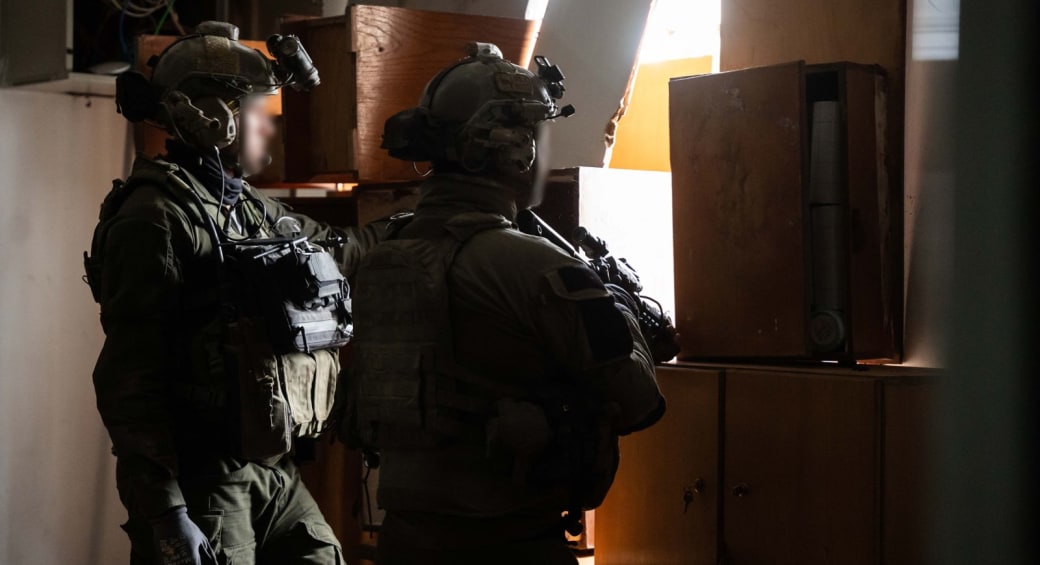
AOC defends calling Israeli operations in Gaza 'genocide'
The US congresswoman accused Israel of intentionally creating the conditions for famine in the Gaza Strip, saying that the humanitarian crisis had "crossed the threshold of intent."

US lawmaker Alexandria Ocasio-Cortez doubled down on Sunday on her comments accusing Israel of genocide, made Friday before the House of Representatives.
In those remarks, Ocasio-Cortez said that Israel blocked Gaza residents from receiving humanitarian aid and food, and blamed the US for contributing to Israel’s ongoing war in Gaza.
Speaking as part of a congressional panel, cited death tolls, reported by the Gaza Ministry of Health, which is controlled by Hamas, and called for the suspension of US military aid to Israel.
"If you want to know what an unfolding genocide is, open your eyes,” she said.
Ocasio-Cortez reasserted her position
Speaking to CNN on Sunday, Ocasio-Cortez said that the humanitarian crisis has “crossed the threshold of intent,” accusing Israel of intentionally creating a famine in Gaza by obstructing the flow of humanitarian aid into the wartorn Strip.
Israeli military and civilian officials say that aid is being allowed into the strip, and that the problem is primarily one of distribution.
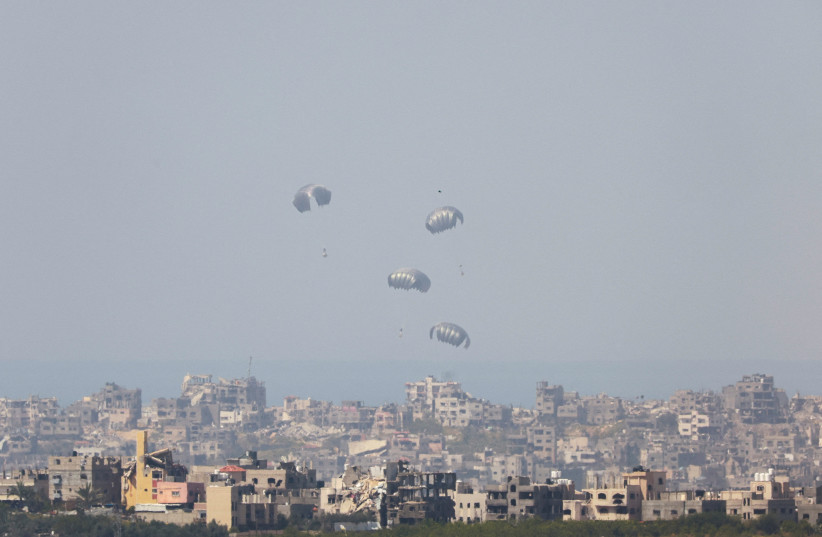
Since Hamas’s October 7 attacks and the outbreak of the Israel-Hamas war, Ocasio-Cortez has been criticized for her rhetoric and actions surrounding the war, such as failing to condemn the sexual violence perpetrated by Hamas and skipping Israeli President Isaac Herzog’s speech to Congress.
Go to the full article >>IDF raids several cities, villages in West Bank - report

Palestinian media reported that the IDF conducted raids in several cities and villages in the West Bank, including in the Jenin, Hebron, and Nablus areas on Monday night.
This is a developing story.
Go to the full article >>Jordanian security forces disperse demonstration in front of Israeli embassy - report

Jordanian security services borke up a demonstration outside of the Israeli embassy in Jordan, Israeli media reported on Sunday.
According to the reports, the security forces used tear gas and smoke grenades to scatter the demonstrators.
Go to the full article >>Displaced Palestinians could return to northern Gaza as part of hostage deal - report
Israeli media have speculated that the offer would be limited to women and children to bar gunmen trying to reinforce those the Israeli military is still battling in parts of Gaza City.
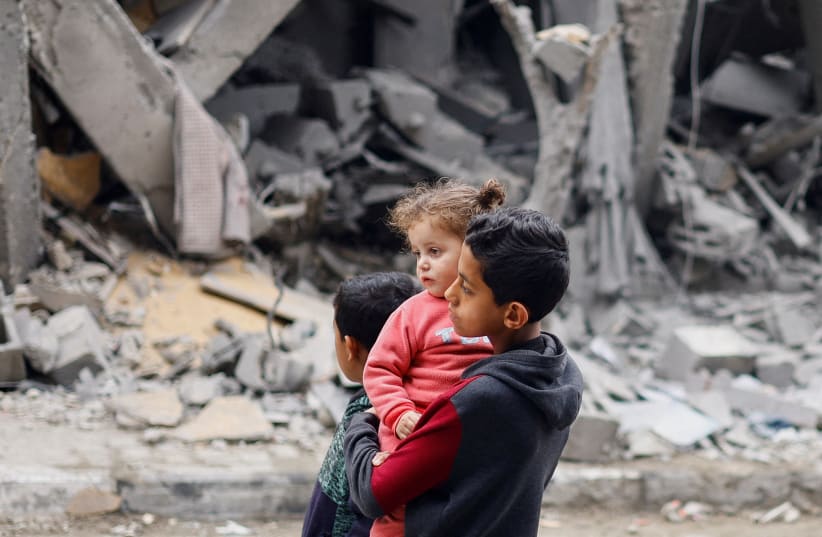
Israel signaled openness on Sunday to allow the return of Palestinians displaced from the northern Gaza Strip as part of truce talks, an apparent accommodation of a core Hamas demand.
The warring sides have stepped up negotiations, mediated by Qatar and Egypt, on a six-week suspension of Israel's offensive in return for the proposed release of 40 of the 130 hostages still held by the Palestinian terrorist group in Gaza.
Hamas has sought to parlay any deal into an end to the fighting and withdrawal of Israeli forces. Israel has ruled this out, saying it would eventually resume efforts to dismantle the governance and military capabilities of Hamas.
Hamas also wants hundreds of thousands of Palestinians who fled Gaza City and surrounding areas southward during the first stage of the almost six-month-old war to be allowed back north.
Israel initially refused to do so. But that position has softened, an Israeli official briefed on the Doha talks said.
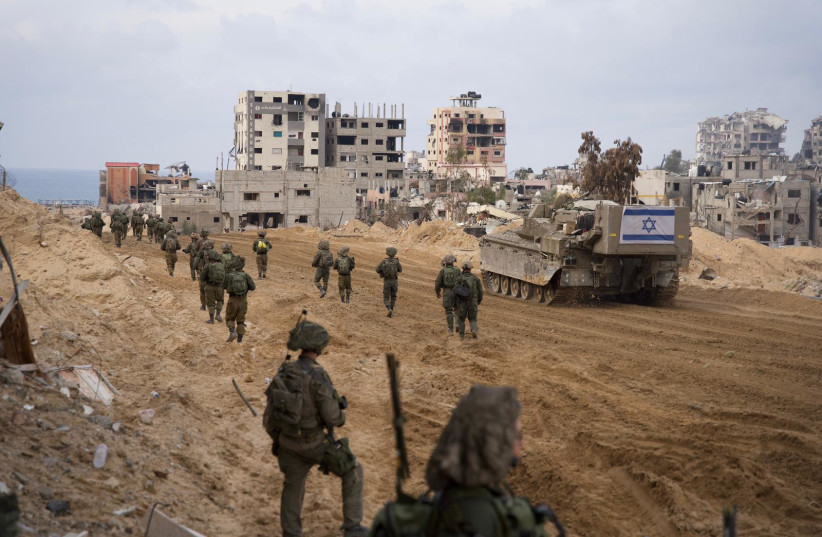
"We are now willing to discuss a return of some of the displaced," the official told Reuters without elaborating on numbers. Israeli media have speculated that the offer would be limited to women and children to bar gunmen trying to reinforce those the Israeli military is still battling in parts of Gaza City.
Israel to allegedly release 700-800 Palestinian prisoners
The official, who requested anonymity, said Israel has also agreed in principle to release between 700 and 800 Palestinian prisoners in return for the 40 hostages.
That appeared to meet a demand of a Hamas proposal, reported by Reuters on March 15, for between 700 and 1,000 prisoners to be released.
The Israeli official cautioned, however, that any final decision would hinge on how many of the prisoners were senior militants serving long sentences for lethal attacks.
Go to the full article >>Israel should make its own peace plan - opinion
Israel has always been able to achieve the impossible in the past: it can strive to do so now.
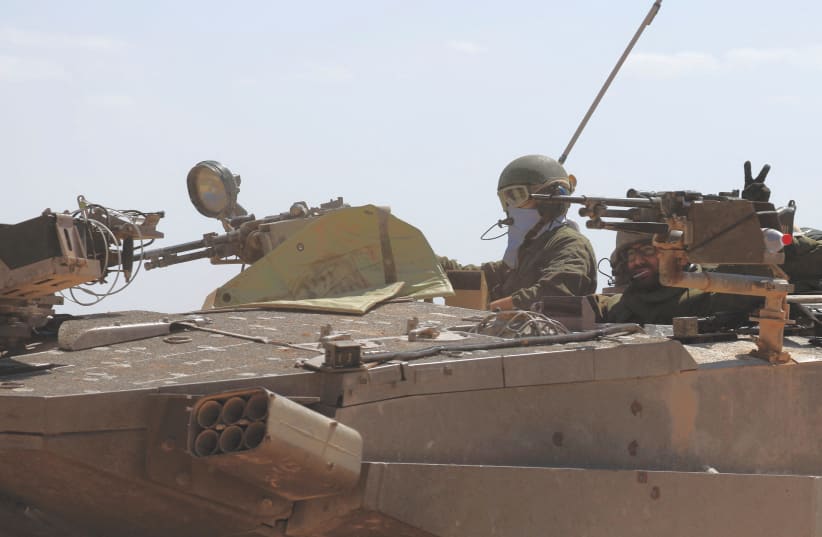
As Israel is in the midst of a bitter war, it is difficult to be thinking about a peace plan. The government of Israel is adamantly opposed to the American push for a Palestinian State. This is seen as a reward for terrorism and a betrayal of the principle of direct negotiations between Israel and the Palestinians.
Agreed.
But the status quo is obviously not satisfactory, neither for Israel nor for the Palestinians. Much of the world, even those countries most friendly to Israel, want to see an end to the endless conflicts in the region. The longer the war goes, the greater is the world’s pressure to recognize a Palestinian State.
What if Israel came forth with a realistic peace plan of its own? What if Israel would not only agree to a Palestinian State but would be the first to recognize it? What if Israel, instead of constantly being seen as an obstruction to peace, was actually the foremost promoter of a peace plan?
The precondition of such a plan would be that Israel will only negotiate with Palestinian leadership that fully recognizes Israel’s right to exist; that commits itself to maintaining peaceful relations with Israel; that makes a concerted effort to eliminate anti-Israel and anti-Jewish propaganda, educational material. In short, Israel should very much want a peaceful neighbor free of Hamas and Hamas-like ideologies.
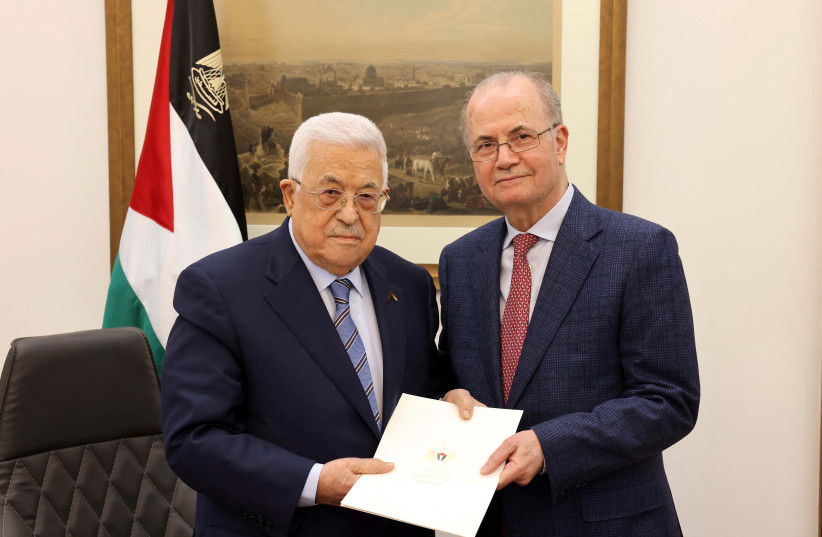
If the United States and its Arab allies could find and encourage such a Palestinian leadership, this would be a great blessing to Israel and the Palestinians. If Israel would produce a peace plan that would put the onus on Palestinians to agree to peace, this would be a dramatic step forward.
Total victory must be achieved
We pray that Israel’s current war with Hamas will end with as great a victory as possible for Israel. The victory must be not only military, but also political and diplomatic. The amazing courage and sacrifices of the IDF are awe-inspiring. Their victory on the battlefield should be followed by victories for Israel in the areas of diplomacy and politics.
Yes, it seems highly unrealistic to find a congenial Palestinian leadership able and willing to negotiate seriously with Israel. It also seems highly unrealistic for the current Israeli government even to consider a peace gesture. But moving forward will require visionary and courageous leadership. It is easy to dismiss peace talk as being in the realm of fantasy.
Former prime minister David Ben-Gurion is reported to have told his advisers: “We don’t need experts to tell us it’s impossible; we need experts to tell us how to achieve the impossible.” Israel has always been able to achieve the impossible in the past: it can strive to do so now.
The writer is director of the Institute for Jewish Ideas and Ideals, and rabbi emeritus of the historic Spanish and Portuguese Synagogue of New York City.
Go to the full article >>Israel foils shooting attack at IDF soldiers near Israeli kibbutz

Palestinian terrorists shot at Israeli forces near Kibbutz Meirav on Mount Gilboa, near the West Bank, Army Radio reported on Sunday.
The terrorists shot from the adjacent Palestinian village of Gilabon.
At this time, there are no reported injuries, and the IDF has returned fire to the sources of the attack.
This is a developing story.
Go to the full article >>Isolation of Israel is growing, solutions are naive in light of current government - opinion
What Israel needs in order to reverse its growing isolation is a basic change of mindset, which can only result from a change of government in Jerusalem.
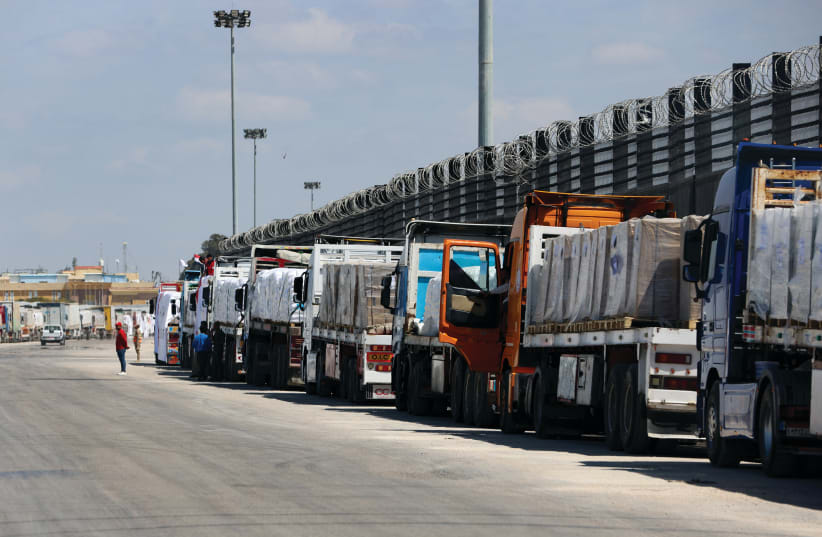
The caption on the Economist’s front cover last Saturday was “Israel Alone.”
Under the caption is the photograph of a solitary dusty Israeli flag, fluttering in what looks like a sand storm, with blurred buildings in the background, allegedly somewhere in the Gaza Strip, though it is difficult to make out whether the buildings are destroyed or not, or where and when exactly the photograph was taken.
The photograph is undoubtedly very powerful, though I am not sure whether it accurately reflects Israel’s current increasingly solitary diplomatic situation.
What there is no doubt about is that for several weeks after October 7 the leaders of the enlightened world were markedly supportive of the situation Israel found itself in, after a particularly nasty attack by some 3,000 Hamas fighters/terrorists, who had crossed the allegedly impenetrable boundary between Israel and the Gaza Strip, and performed a systematic massacre, accompanied by numerous forms of war and humanitarian crimes.
The attack, for which the Israeli security forces were totally unprepared, resulted in around 1,200 civilians (most of them Israelis, but also several dozen foreigners) and military forces being killed, and 253 hostages – both living and dead – being taken across the border, into the Gaza Strip. Close to half of these are still in captivity there, awaiting release.
Of those who backed Israel at this stage, the vast majority justified a strong Israeli military reaction, involving the infliction of a deadly military and administrative blow on Hamas, and moves to bring back the hostages. The US administration went much farther than the rest, promising to provide Israel with all the arms and munitions it required, in addition to moving an American aircraft carrier and forces into the region.
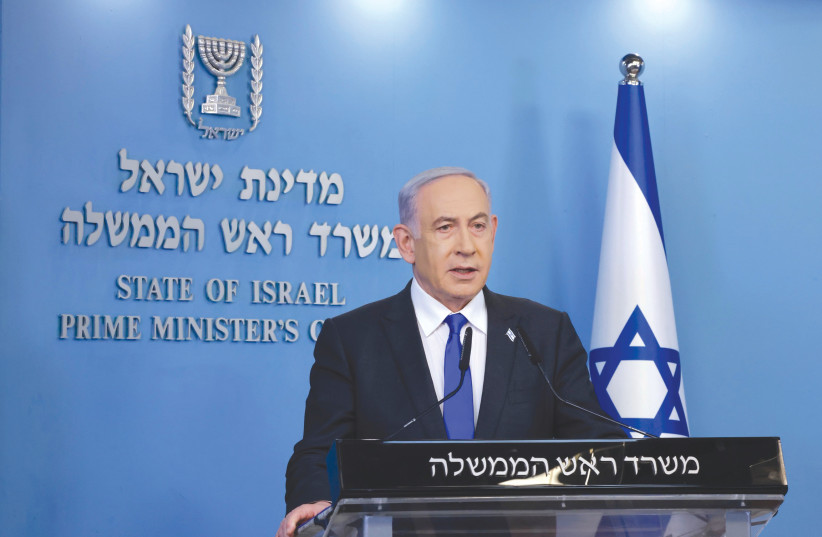
HOWEVER, from the very beginning the US administration insisted that Israel start to plan the “day after,” and present a viable plan for the fighting, with minimal civilian casualties. Prime Minister Benjamin Netanyahu rejected or fudged both requests.
The result of Israel’s activities in the Gaza Strip were a massive destruction of both homes and public buildings in the city of Gaza, the forced movement of over one million civilians from northern Gaza to the center and southern Strip, creating a vast humanitarian problem of homeless, displaced Palestinians, which rapidly developed into chaos.
The number of persons killed progressively mounted to over 30,000 persons – at least a third of them children, and (according to Israel) another third active members of Hamas. Though Israel denied that it was on a vindictive journey of revenge, the world started to view the situation differently.
Israel’s original reaction to the demand for the systematic entrance of humanitarian aid into the Gaza Strip was a categorical “no” – at least until the release of all the Israeli hostages. In the face of international pressure, Israel was forced to give way, though it continued to insist on checking the content of the aid, and trying to prevent it from reaching Hamas hands. The quantity of aid progressively grew – some entering the Gaza Strip from Egypt, another part entering via Israel, and recently also from the air and the sea.
While the international community claims that there is a problem of hunger and malnutrition in the Gaza Strip, Israel argues that the situation is not as bad as that, with an extensive black market in existence, and members of hamulot (extended families) in control in certain areas. Nevertheless, it cannot be denied that the absence of an effective administrative mechanism to manage the distribution of the humanitarian aid is strongly felt.
Efforts for the release of hostages
AT THE CURRENT stage, major efforts are being made to bring back to Israel another 40 of the remaining hostages (women and children, as well as elderly, unwell or disabled men), to be followed, later on, by the remaining live and dead hostages, in return for the release of large numbers of Palestinian prisoners held in Israel, prolonged ceasefires, and additional Hamas demands, such as the immediate return of evacuees to the northern Gaza Strip, which Israel rejects out of hand.
Both the US administration and other international players are trying to get Israel to avoid a planned attack on Rafah – the last town in the Gaza Strip that Israel has not conquered, and where over one million displaced Gazans are currently living in tents and other provisional forms of shelter.
Israel is adamant in its refusal to accept the latter request, and its former supporters are starting to threaten it with sanctions, especially in the sphere of arms and munitions sales, and personal sanctions against individual Jewish settlers in Judea and Samaria (the West Bank) reported to be acting violently against Palestinians – and getting away with it by the Israeli authorities.
However, the worst deterioration concerns Israel’s relations with the American Administration in general, and between President Joe Biden and Netanyahu in particular. This deterioration is not only being affected by the presence or absence of Israeli activities in the Gaza Strip, but also by the approaching November US presidential elections, and growing dissatisfaction in Democratic circles, especially with what is viewed as Netanyahu’s ungratefulness to the US, and his alleged concern with keeping his all-Right coalition together, at almost any cost.
IN THE COURSE of this week an Israeli team, headed by Strategic Affairs Minister Ron Dermer and head of the National Security Council Tzachi Hanegbi are to travel to Washington to discuss with American officials Israel’s determination to carry out its attack in Rafah, in order to wipe out the last bastion of Hamas fighters/terrorists in the Gaza Strip. The US objects to such an attack, primarily on humanitarian grounds.
Dermer expressed the Israeli position in a Times of Israel podcast last Thursday, in which he stated: “It will happen, even if Israel is forced to fight alone. Even if the entire world turns on Israel, including the United States, we’re going to fight until the battle’s won.” Netanyahu has been speaking in a similar vein. Whether the conversations in Washington will end up preventing a total clash on this issue, is yet to be seen.
In its last issue, the Economist suggested that “there is still a narrow path out of the hellscape of Gaza” which could emerge from an agreement on a temporary ceasefire and hostage release between Israel and Hamas, and could also extricate Israel from its growing isolation.
I believe this is a rather naïve portrayal of the situation. What Israel needs in order to reverse its growing isolation is a basic change of mindset, which can only result from a change of government in Jerusalem. The Economist appears to believe that successful negotiations on a new hostage deal between Israel and Hamas could somehow lead to a change of government.
However, short of early elections, which under the current political setup seem unlikely, only an agreement between Israel and Hamas, which would be rejected by both Religious Zionism and Otzma Yehudit on ideological grounds, could bring about a change in the make-up of the government at this stage. Is Netanyahu likely to accept an agreement that will lead the leaders of the two extreme-right parties to leave the government? I doubt it.
The writer worked in the Knesset for many years as a researcher, and has extensively published both journalistic and academic articles on current affairs and Israeli politics. Her most recent book: Israel’s Knesset Members – A Comparative Study of an Undefined Job, was published by Routledge last year.
Go to the full article >>Israel-Hamas war: What you need to know
- Hamas launched a massive attack on October 7, with thousands of terrorists infiltrating from the Gaza border and taking some 240 hostages into Gaza
- Over 1,200 Israelis and foreign nationals were murdered, including over 350 in the Re'im music festival and hundreds of Israeli civilians across Gaza border communities
- 134 hostages remain in Gaza, 34 of which killed in captivity, IDF says